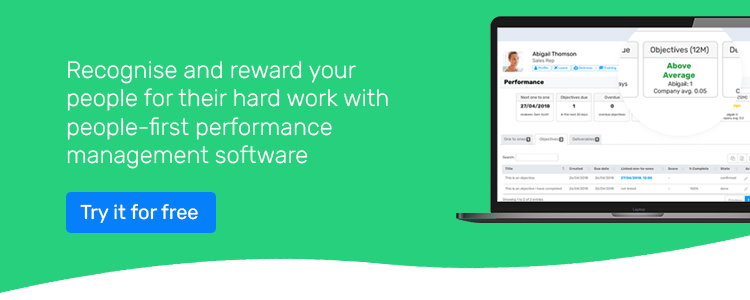What can we learn from the evolution of HR?
In this HR profile piece, we focus on how Breathe HR Partner, Níamh Kelly, feels HR has evolved and the advice she can offer HR professionals. Níamh is a Fellow of the CIPD and Director at HR Dept Shropshire, Wrexham & Chester.
We asked Níamh some questions about her HR experience – and what she’s learned along the way.
Read on for the key career learnings of an HR Director.
.webp?width=300&height=300&name=N%C3%ADamh%20Kelly%20in%20circle%20(1).webp)
HR has changed. When I first started out…
HR was known as ‘Personnel’, and it was all about workforce planning – more ‘resources’ than ‘human’.
Little thought went into policies that supported staff – if any. Health and wellbeing at work just wasn’t a key issue for employers. Even up until recently, employers would have shied away from remote working.
My experience of HR has evolved – in more ways than one
In my career, I’ve moved away from ‘corporate HR’ (working as part of an in-house HR team), to ‘consultant HR’ (where I’m external to the company I’m advising). As a result of this, I’ve become much more pragmatic.
Although process and procedure are both very important (as anyone who has been to an employment tribunal will agree), my own practice view has moved away from ‘this is what we have to do’ to much more ‘these are the range of things we can do’.
Too often, HR falls into the role of…
‘Managing the difficult people’. Instead, what we should be doing is empowering managers.
If we do that, we can focus our energies on other, more people-focussed or strategic work.
10 years ago, HR was very different…
A decade ago, we didn’t have the shortage of workers that we’re experiencing now - nor the impact of a pandemic and a cost-of-living crisis. Not to mention the toll this has taken on people’s mental health and wellbeing.
10 years ago, most HR departments were still being called ‘Personnel’, or ‘Personnel and Industrial Relations’. HR was very much a transactional department, roles focussing on record-keeping and data collection.
Many of us were expected to produce HR dashboards, reporting on sickness absence levels etc. The emphasis was very much on improving or reducing the various trends the dashboards highlighted.
In the past, the focus was on how many people were off work, and how long it took to get them back to work. ‘Work’ then meant the physical location of the job on site.
Now, the emphasis is much more strategic & holistic – how can we support the person to be able to contribute to the workforce.
There’s more understanding that work doesn’t always need to be done in the office, and people can work in a hybrid manner. We know that contributions can be made in other ways, and the discussion is more inclusive with the employee, rather than a set of instructions.
I’m seeing more emphasis on inclusive workplace culture
…which I think is linked to a shortfall in job applicants. Because there are more jobs than there are candidates, applicants can consider organisations with values that match their own.
It’s easy to assume that equality, diversity & inclusion means treating everyone the same – but it’s actually about treating everyone fairly.
For me, inclusion is about considering how we can overcome the barriers that prevent our colleagues from participating.
Caregiving responsibilities are much wider than childcare alone – the pandemic taught us that. A good example of inclusion in the workplace might be not scheduling a 9am team meeting when colleagues might have the school run. This also extends to having team events in the evening or at weekends when people have other commitments.
Problems can arise when those participating colleagues are seen as joining in with a ‘team building exercise’. If others regularly don’t participate in the social events or miss the staff meetings, they can be unfairly labelled ‘not a team player’. Inclusive behaviour at works extends to considering employees’ circumstances and trying to be as fair as possible towards everyone.
There’s also been a shift away from ‘Corporate Social Responsibility’ (the way companies interact within their community & charitable causes) towards ‘Environmental, Social and Governance’. Employees now want to know what their employers are doing to measure sustainability and ethical impact - and HR policies and procedures will increasingly need to reflect that.
My best piece of advice to someone working in HR today would be:
‘Have you got that in writing?’
I know that might sound quite old-fashioned - but you’d be amazed by the number of times I’ve been glad that I did that quick file note during a meeting.
I’ve also been grateful for the times I’ve sent an email to someone with a quick note confirming what we’ve just agreed or discussed.
Technology has revolutionised HR’s purpose
The increasing ability to store records electronically has been a revolution for HR - but also for employees who want access to their files.
HR systems have (rightly) given employees huge control over their data, meaning they can record their leave and absence. It’s certainly made HR dashboards easier to create.
But for every positive technological change, there can often be a downside. For me, it’s the expected response time that comes with email or electronic communication. This has made many HR colleagues carefully consider how they communicate and store records. For example, the email that might have seemed a quick, flippant response at the time can become a minefield when part of a subject access request.
My skillset has adapted to the needs of the HR function today
This generation of HR professionals has navigated many unforeseen challenges in today’s working world. Because of this and how things have changed, my skillset now needs to include how I can future-proof processes, policies and procedures for my clients.
HR professionals will always need to ensure that their understanding of employment law is up to date. That will always remain an important part of our skillset.
One thing I have added to my own personal skillset is horizon-scanning. I consider how emerging trends and developments might potentially affect current policy and practice.
My advice to someone starting their HR career would be:
Take every opportunity to learn good practice from the people managers you’ll work with.
I was incredibly lucky to have spent part of my career in the NHS, and clinical managers taught me a lot about ‘reflective practice’ - something that they do all the time when it comes to patient care, but not something I’d considered in terms of HR.
At the end of every project or meeting, we’d take the time to ask each other ‘how do you think that went; what could we have done differently?’ This was an invaluable learning for me, and a practice I’ve continued.
Staying up to date with learning can be hard – especially when we’re busy
I’m lucky to be part of a licensed franchise operation where training and development is embedded in the model. We have access to monthly legal webinars, as well as licensee-led sessions on everything from supporting our clients through Covid, to best practice in flexible and hybrid working.
And of course, as a Fellow of the Chartered Institute of Personnel & Development (CIPD), I keep myself informed through our industry publications.
But nothing beats speaking to other HR professionals. A number of my colleagues are on national government commissions on employment issues. This means that together with our local CIPD branch, we have access to the latest thinking when it comes to employment and employment law.
The future of HR – considerations for SME HR teams:
In the current labour market, it’s very easy to get taken up with having to recruit to fill vacancies - but keep an eye on why those vacancies arise in the first place.
In other words, what are you doing to retain your current staff? It’s not always about pay; consider other benefits, training and development and career progression.
Níamh Kelly is a Director at HR Dept Shropshire, Wrexham & Chester. She is a Fellow of the CIPD and a Breathe HR Partner.
Find out more about receiving professional HR support, or trial Breathe for free for 14 days.

Author: Aimée Brougham-Chandler
An IDM-certified Digital Copywriter as of February 2023, Aimée is Breathe's Content Assistant. With a passion for guiding readers to solutions for their HR woes, she enjoys delving into & demystifying all things HR: From employee performance to health and wellbeing, leave to company culture & much more.




